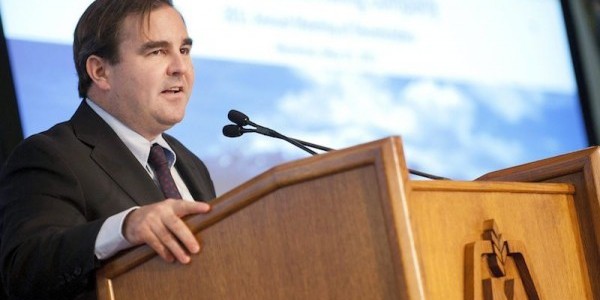Few companies can say they’ve been around for multiple generations. But, the Molson Coors Brewing Company can trace its history back through centuries.
The Molson side of the equation dates back to 1786, when John Molson founded a brewery along the St. Lawrence River in Montreal. Today, the seventh generation of the Molson family sits on the board of directors. Andrew Molson, a board member along with his brother Geoff, shares his thoughts on what’s helped the company survive for 230 years.
Few family companies make it past the third generation. Molson is into its seventh. What main factors have contributed to its longevity?
There’s a bit of luck involved; it’s not just really good strategy. But, if you look at the history of our beer business, we were only selling beer in the province of Quebec from 1786 until the late 1940s. For many, many years we were focused on one place, and it was only in the late 1940s that we started to venture out into the rest of Canada. We took our time. Secondly, you see families involved in the beer business—the Heineken family is still involved, for example. So you do get a family presence in the industry, which might help explain it. The other thing is the way we govern. We left management and the CEO of the company to run the show. That approach allows for continuity from generation to generation.
How did that approach develop?
When we went public in 1945. We realized that our family was no longer entirely in control of this operation, and that we were now sharing control with public shareholders. We took the decision that we could be great owners, but we weren’t necessarily the best managers.
What does it mean to be great owners?
We’re deeply committed to the company, and where the company is headed. When you live in a world where the average tenure of a CEO is five years, we’re there for the long term. I think what makes a good owner is the assurance that we’re there in good times and bad.
Molson had a dual class share structure, as does Molson-Coors. What effect did that have on the company?
I studied corporate governance at the University of London, and my thesis defends the dual class share structure. It concludes that you can’t do better than a company that has the presence of a committed, knowledgeable, long-term minded shareholder sitting on the board, acting in the interests of all shareholders. A dual class share structure is a mechanism to allow you to do that. It might not be the best mechanism—complete control without dual class is even better. But, it is a way to access capital from the public markets while still maintaining a long-term vision of the company.
Dual class share structures have often been criticized, particularly these days with respect to Bombardier.
If the dual class share mechanism was not in place for Bombardier, the company might not exist any more in Canada and might not be taking the risks it has taken. Certainly the most optimal dual class share structures have a good separation between the role of the owner and management, and we’re seeing signs of that at Bombardier, where there’s a family member who’s chairman, but the company is being run by an external CEO.
In your family, was there an expectation you would eventually work in the business?
We had parents who encouraged us to go out and do what we were interested in. My parents never really steered us towards getting involved in the family business. My brother Geoff very much wanted to work at the company at a young age, and our parents told him to go out into the world and learn somewhere else, and then come back to the company, which he did. I was more interested in other things like law, and I kind of fell into it later on when we merged with Coors in 2005. But we do have a sense of responsibility [to the business] when we have the name that we carry. We feel it everyday, especially living in Montreal. I like to say that I spent a good deal of time figuring out who Andrew was first, and then applied Andrew to my last name, when I joined the company.
Molson will be speaking at the Family Business Symposium in Calgary on May 17, an event organized by the Canadian Association of Family Enterprise.
This article originally appeared at CanadianBusiness.com.











